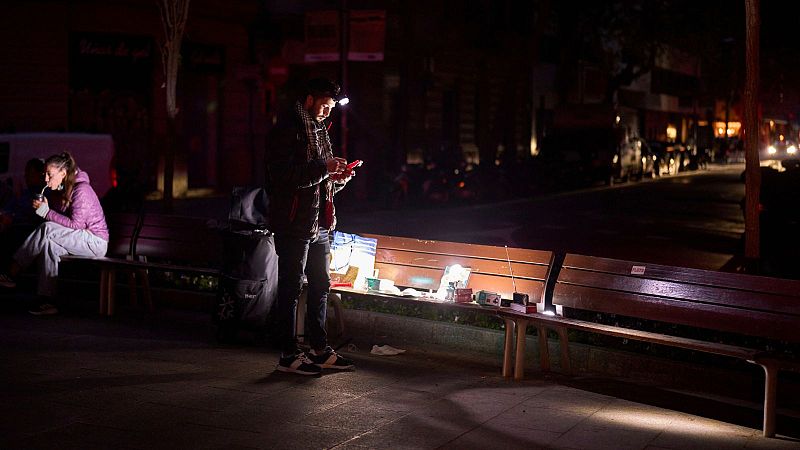
Spain and Portugal are still reeling from the largest power cut in recent European history, which struck just after midday on Monday. With power supplies mostly back to normal, attention is laser-focused on what caused the incident.
Speculation is rife, and some commentators have been quick to blame renewables, which now make up a large share of both countries’ power mixes.
“Net-zero blamed for blackout chaos” proclaimed one headline from UK newspaper The Daily Telegraph, but no-one quoted in the article actually drew that conclusion, and the exact cause remains a mystery.
“First and foremost, we must remain cautious and allow REE’s [Spanish grid operator Red Eléctrica] technicians to do their work in order to understand what happened,” SolarPower Europe, UNEF (the Spanish solar association) and the Global Solar Council said in a joint statement yesterday.
“Photovoltaic technology is a mature technology that is fully capable of providing everything the grid needs for stability,” they added, explaining why solar systems are unlikely to be at fault.
A cyberattack has largely been ruled out as a potential cause, as has extreme weather. Here’s what experts are saying about renewables in the Iberian grid and what role they played in the mass power outage.
What happened to Spain’s renewables during the blackout?
Data from the Spanish grid operator’s website shows a dramatic drop in demand shortly after 12.30pm on Monday, when it nosedived from 25GW to 10GW in an instant.
REE head of services Eduardo Prieto said that two consecutive events - one at 12.32pm and another a second-and-a-half later - pointed to a “generation disconnection” that had cut off the supply across the peninsula.
While the system weathered the first event, it reportedly could not cope with the second.
The operator’s head of services noted that the problem started in southwest Spain, which is where much of the country’s solar energy is generated.
Some experts have previously voiced concern that Spain’s grid needs to be upgraded to cope with the rapid integration of solar and wind. But others stress the unlikelihood of the mass blackout being down to the intermittent renewables, which the Spanish and Portuguese operators are by now adept at handling.
Spanish energy think tank Fundacion Renovables explains that renewable power plants with 2MW of power generation or more were disconnected because of a disturbance in the frequency of the power grid - as per national safety protocols.
Essentially, the disturbance was “a consequence and not a cause”, it said in a statement. SolarPower Europe, UNEF, and Global Solar Council also emphasise that photovoltaic power plants did not voluntarily disconnect; they were disconnected from the grid.
“It is still early to identify the cause of the outage - power systems are very complex infrastructures with very extended interactions,” Grazia Todeschini, Reader in Engineering at King’s College London, tells Euronews Green.
“I can only trust system measurements that I found online showing frequency oscillations prior to the event, indicating some type of instability in the area where the blackout took place. I presume that with time and collection of more data, it will be possible to have a clearer picture of what happened…”
Spanish PM and renewable experts denounce ‘lies’ blaming wind and solar
“The fact that Spain has a high production of electricity from renewable sources has no link to the grid failures that occurred on Monday,” Fundacion Renovables adds. “We regret that an extremely serious situation is being taken advantage of to spread falsehoods and generate disinformation in an already very complex situation for all affected citizens.”
In a press conference yesterday, Spanish Prime Minister Pedro Sánchez called claims that renewable energy was to blame for the outage “lies”, attacking those who linked the blackout to Spain’s use of wind and solar.
"Those linking the blackout to the lack of nuclear power are either lying or demonstrating their ignorance," he said.
Sánchez announced that the government has set up a commission to investigate the incident and will be examining the role of private energy companies.
Solar helped Spain’s electricity system recover
Advocates of renewable energy emphasise that solar and wind are reliable energy sources, and go hand-in-hand with energy security.
Stephen Jarvis, assistant professor in environmental economics at the London School of Economics and Political Science, was tracking the grid changes yesterday as Spain attempted to bring the grid back online. He observed that solar, wind and hydro were still delivering energy in Spain, at a time when nuclear, gas and coal were totally offline.
Far from being the cause of the peninsula’s woes, Fundacion Renovables states that the large percentage of renewable energy in Spain and the flexibility of hydropower systems enabled the nation to react and recover more quickly.
“If Spain had not had so much renewable capacity, the return to normality of the grid would have been longer in time,” it adds.
As investigations into the main grid outage continue, CEO of Global Solar Council Sonia Dunlop noted that solar also has an important role to play during power cuts.
“If you have rooftop solar and storage on your home or business, and if it is wired up to be able to work off-grid, then you are much more resilient to blackouts,” she posted on X yesterday.
“Solar and storage provide resilience to climate impacts, natural disasters and more. If heatwaves and freak weather are going to lead to more blackouts, it might be worth more people installing solar in such a way that it can go into island mode.”
Lessons need to be learnt and shared, experts say
“Events of this scale have happened in many places around the world over the years, in power systems using fossil fuels, nuclear, hydro or variable renewables. It doesn't matter where you are getting the energy from, you've got to get the engineering right in order to ensure resilient supplies of electricity,” Professor Keith Bell, expert at the UK’s Institution of Engineering and Technology (IET) tells Euronews Green.
“Thanks to the design of power systems and well-established system operation protocols, major power outages like this are mercifully rare. However, it is impossible to guarantee that something of this scale will never happen.”
System operators need to be prepared for what to do if and when they do, he adds. Lessons need to be learnt and shared internationally once investigations have been completed.
The incident has also prompted discussion on the Iberian Peninsula’s status as an ‘energy island’ within the EU, given it is relatively disconnected from the rest of the bloc.
It remains to be fully analysed whether closer links with Europe’s grids could have aided Spain and Portugal - or put more countries at risk.







